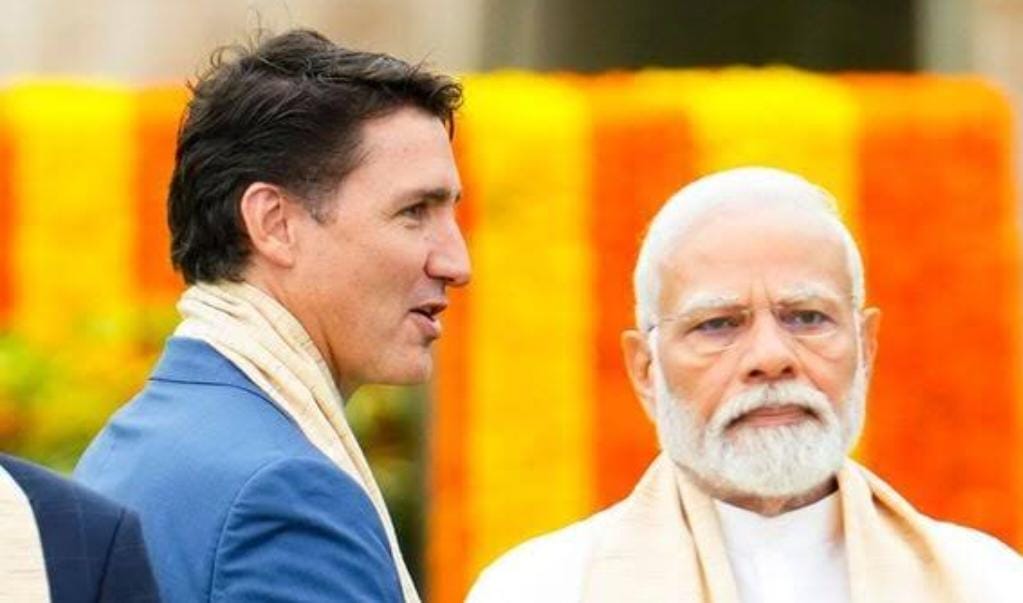On Monday, India ordered Canadian diplomats in New Delhi to leave by Saturday, responding to Canada’s investigation of its Indian ambassador and other officials as “persons of interest” following the killing of Sikh separatist leader Hardeep Singh Nijjar last year.
The move came after Canada expelled six Indian diplomats, with Prime Minister Justin Trudeau emphasizing that evidence presented by the Royal Canadian Mounted Police (RCMP) links these individuals to a “campaign of violence” orchestrated by the Indian government.
India’s Ministry of External Affairs named the six diplomats, including Acting High Commissioner Stewart Ross Wheeler and other senior officials, demanding their departure by October 19, 2024.
The ministry condemned Canada’s allegations as baseless and communicated its concerns to the Canadian Charge d’Affaires. It also announced the withdrawal of its High Commissioner and other diplomats from Canada, citing a lack of trust in the Canadian government’s ability to ensure their safety.
The Indian government dismissed accusations against Sanjay Kumar Verma, the Indian High Commissioner, as “ludicrous” and warned of further action if Canada continued supporting what it termed “extremism and separatism.”
Canadian Prime Minister Justin Trudeau, in his recent statement, reiterated that Canada is rooted in the rule of law and stressed the country’s commitment to the safety of its citizens. “When our law enforcement and intelligence services began pursuing credible allegations that agents of the Government of India were directly involved in the killing of a Canadian citizen, Hardeep Singh Nijjar, we responded,” said Trudeau.
He added that despite repeated attempts to engage with India, Canadian authorities were met with non-cooperation.
In response to India’s refusal to collaborate, Trudeau’s government took the extraordinary step of issuing deportation notices for six Indian diplomats identified as being involved in activities that pose significant threats to public safety, including clandestine information gathering, coercion, and violent acts against South Asian Canadians.
“Canada will never tolerate the involvement of a foreign government in threatening and killing Canadian citizens on Canadian soil,” Trudeau stated, calling it a severe violation of Canada’s sovereignty and international law.
The tensions between the two countries have escalated since Trudeau’s initial allegations last September, when he suggested Indian agents were involved in Nijjar’s murder in Surrey, British Columbia.
Nijjar, who had migrated to Canada in 1997 and became a citizen in 2015, was an advocate for a separate Sikh state, Khalistan, and had been wanted by Indian authorities for alleged terrorism.
India has consistently rejected these accusations as “absurd” and criticized Trudeau’s government for allegedly harboring extremists for political gain.
Trudeau acknowledged the impact of these developments on Indo-Canadian and Sikh communities, stating, “I know the events of the past year and today’s revelations have shaken many Canadians, particularly those in Indo-Canadian and Sikh communities.”
He reaffirmed Canada’s commitment to protecting its citizens and urged India to cooperate with the investigation, respect international law, and cease its operations on foreign soil.
